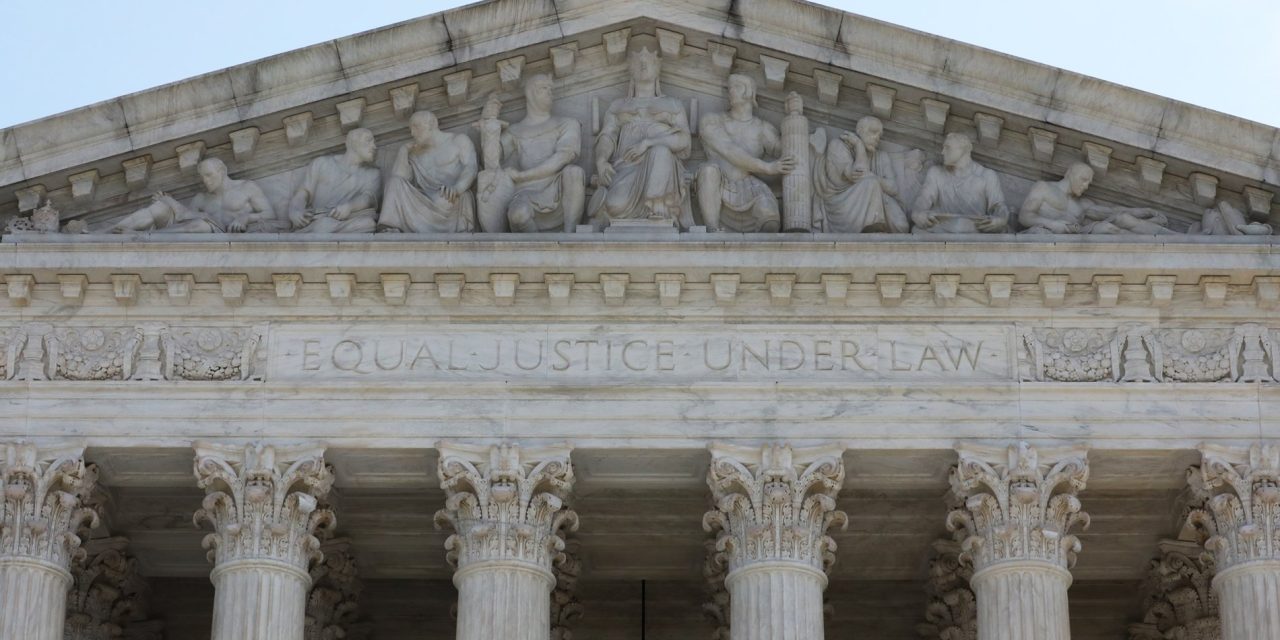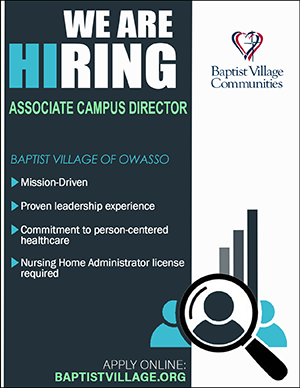WASHINGTON (BP) – The United States Supreme Court ruled Thursday (June 26) that South Carolina can continue its effort to defund Planned Parenthood by barring abortion clinics in the state from participating in Medicaid programs.
The case, Medina v. Planned Parenthood South Atlantic, involved South Carolina officials asking the justices whether a Medicaid beneficiary and Planned Parenthood have the right to sue on the matter. Eunice Medina, director of South Carolina’s Department of Health and Human Services, was named as the petitioner in the case.
The Supreme Court’s 6-3 decision in favor of South Carolina states that the Medicaid Act’s “any-qualified-provider provision,” which gives Medicaid recipients the ability to choose their provider, does not give beneficiaries the right to sue when the state excludes their preferred provider, like Planned Parenthood. Federal law currently prohibits Medicaid from funding abortions except in cases of rape or incest, or to save the life of the mother.
The decision explains this provision in the Medicaid Act does not contain “rights-creating language” in terms of allowing citizens the choice to receive medical services from abortion providers, and uses the Federal Nursing Home Reform Act as a proper example of this language.
“Medicaid plans must ‘provide that . . . any individual eligible for medical assistance . . . may obtain such assistance from any . . . qualified provider,’” the decision states. “This language addresses state duties and may benefit providers and patients, but lacks FNHRA’s clear ‘rights-creating language.’
“Congress knows how to create clear rights, as FNHRA shows by giving nursing-home residents ‘the right to choose a personal attending physician.’ But that is not the law here.”
Therefore, the High Court’s decision states Planned Parenthood and fellow defendant Julie Edwards (a Medicaid recipient seeking to utilize PP services) do not have the right to file a Section 1983 lawsuit, which is a civil lawsuit allowing individuals to sue state and local government officials for violating their constitutional rights or federal statutory rights.
The High Court’s majority decision was delivered by Justice Gorsuch. Justice Jackson filed a dissenting opinion and was joined by Justices Kagan and Sotomayor.
Brent Leatherwood, president of the Ethics & Religious Liberty Commission (ERLC), spoke to the importance of the High Court’s ruling.
“Today’s decision by the Supreme Court is a major win for protecting vulnerable preborn lives,” Leatherwood said.
“By excluding abortion providers from its Medicaid program, South Carolina rightly reflects its citizens’ values in its public health funding. The Court’s ruling will support other states as they seek to deny Planned Parenthood and other abortion providers taxpayer money.”
Other states that have enacted laws blocking Planned Parenthood from receiving Medicaid funding include Arkansas, Missouri, Mississippi and Texas.
The ERLCfiled an amicus brief supporting South Carolina in February.
“As the ERLC made clear in our brief, this decision respects the will of pro-life states, protects preborn children and it moves us closer to our goal of ending abortion,” Leatherwood said.
The ERLC’s brief explains that by receiving Medicaid funds to perform other services, taxpayers are essentially subsidizing Planned Parenthood’s main focus of performing abortions.
“Planned Parenthood is responsible for more than a third of all induced abortions performed in the United States each year,” the brief stated. “A large percentage of its revenue comes from offering abortions. Even as its abortion numbers have risen year after year, the medical services it offers have sharply declined – as have its adoption referrals.”
The brief further argues that Planned Parenthood clinics are not needed to provide prenatal care to expecting mothers as other health clinics provide those services, and reiterates that Planned Parenthood’s main mission is performing abortions despite what some misleading statistics seem to indicate.
The brief references multiple SBC resolutions speaking against tax-payer funding of abortion as evidence of the convention’s longstanding position on the issue.
The story of the case began in 2018 when South Carolina Gov. Henry McMaster issued an executive order instructing the state’s Department of Health and Human Services to bar abortion clinics from participating in Medicaid.
Edwards and Planned Parenthood filed a lawsuit arguing South Carolina’s ban on Planned Parenthood receiving Medicaid funds violates the aforementioned Medicaid provision allowing any patients eligible for Medicaid to seek health care from any “qualified” provider.
A federal district court in South Carolina sided with Edwards and Planned Parenthood and blocked the state’s ban. The district court’s ruling was then upheld by the 4th Circuit Court of Appeals.
This prompted South Carolina to take the case to the Supreme Court, asking the justices whether individual Medicaid beneficiaries have the right to sue on the matter.
South Carolina argued that multiple federal courts of appeal have subjected states to lawsuits on this issue that Congress never intended, which is why the Supreme Court must intervene.
After the High Court considered South Carolina’s petition at nine consecutive conferences, the justices finally agreed to take up the case on Dec. 18, 2024.
Oral arguments in the case were held April 2.
In arguments lasting nearly two hours, attorneys from each side answered questions from the judges about whether the Medicaid Act’s language qualifies as “rights-creating.”
South Carolina was represented in the case by Alliance Defending Freedom. ADF attorney John Bursch outlined several reasons the language does not count as “rights-creating” including its lack of specificity.
Nicole Saharsky, lawyer for the defense, argued the statute does constitute rights language, even though it does not contain the word, and citizens do have the right to sue if this right is violated.
She argued the High Court has previously established that “magic words” aren’t required in such language and “if the individual can’t sue, this provision will be meaningless.”
In his closing rebuttal, Bursch provided counter points to that argument.
“My friend, Ms. Saharsky, said the provision is mandatory because the state must do these things. That’s not what it says. It says that the plan must provide these things,” Bursch said.
“My friend admitted to Justice Gorsuch that a statute can require the provision of a benefit yet not have rights-creating language. That’s this case. The fact that the 12 of us can have such a robust conversation about whether this statute is mandatory or not, whether it’s rights-creating or not, demonstrates that the rights-creating language is ambiguous, not clear and explicit.
“And if there is any ambiguity in this context, the state has to win because it’s not being put on notice of when it might be sued.”
Two additional Supreme Court cases in which the ERLC are actively engaged, Free Speech Coalition, Inc. v. Paxton and Mahmoud v. Taylor, are still yet to be decided with rulings expected this summer.




